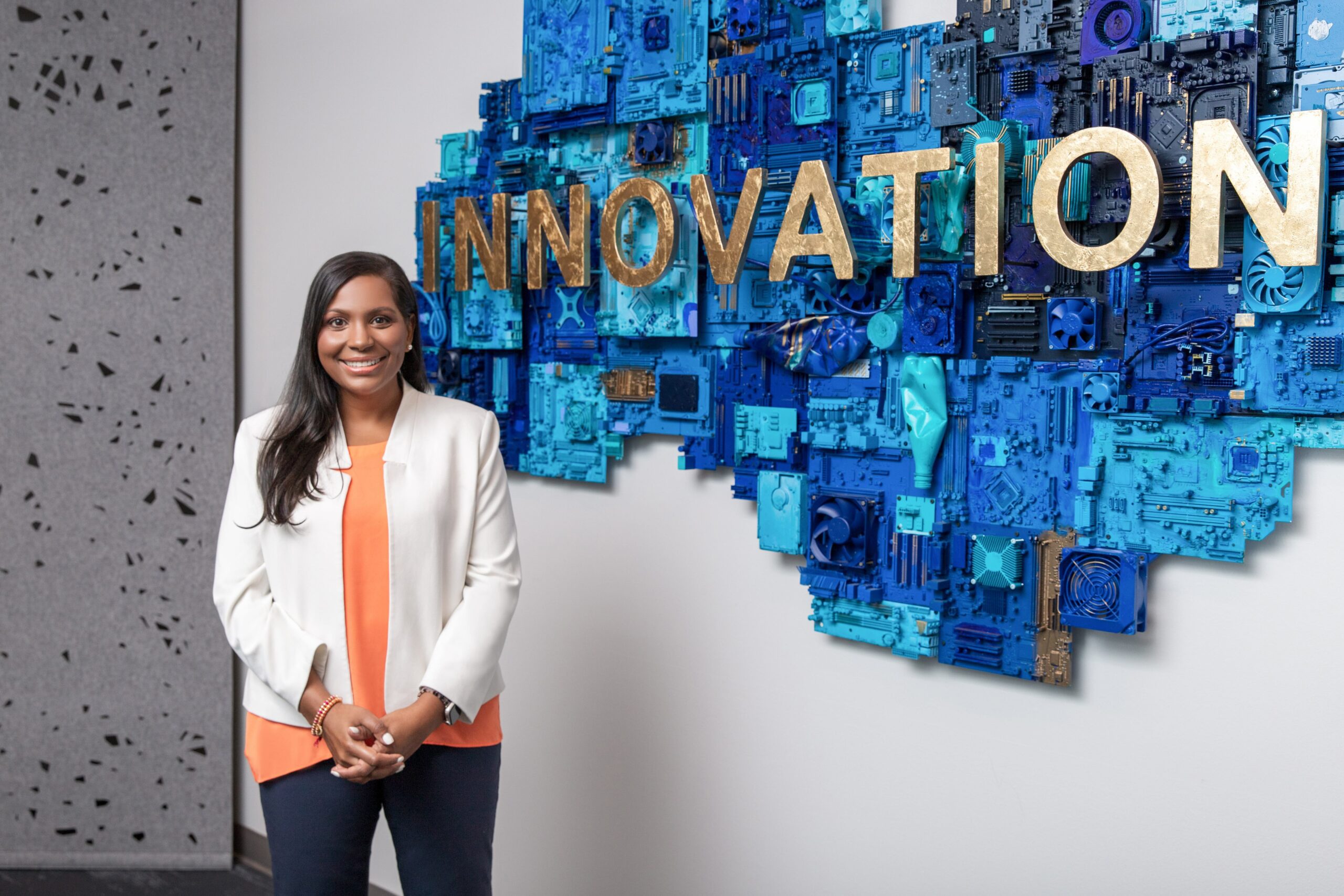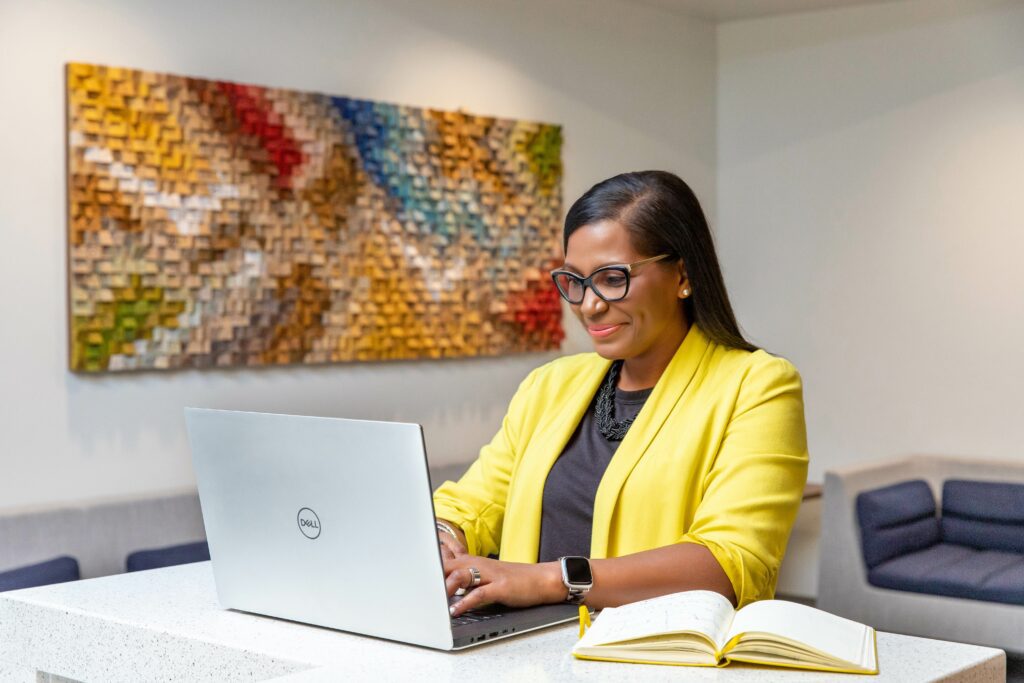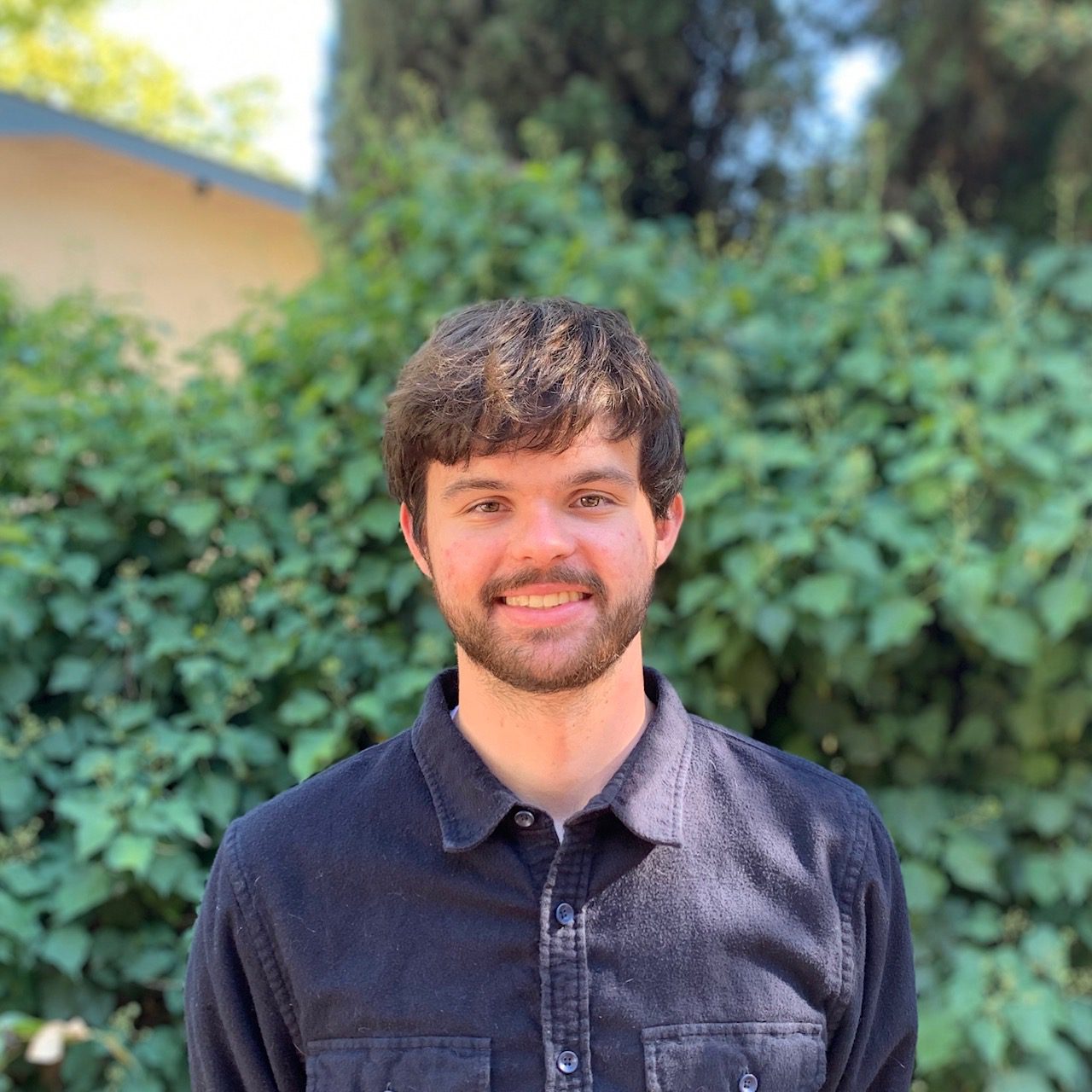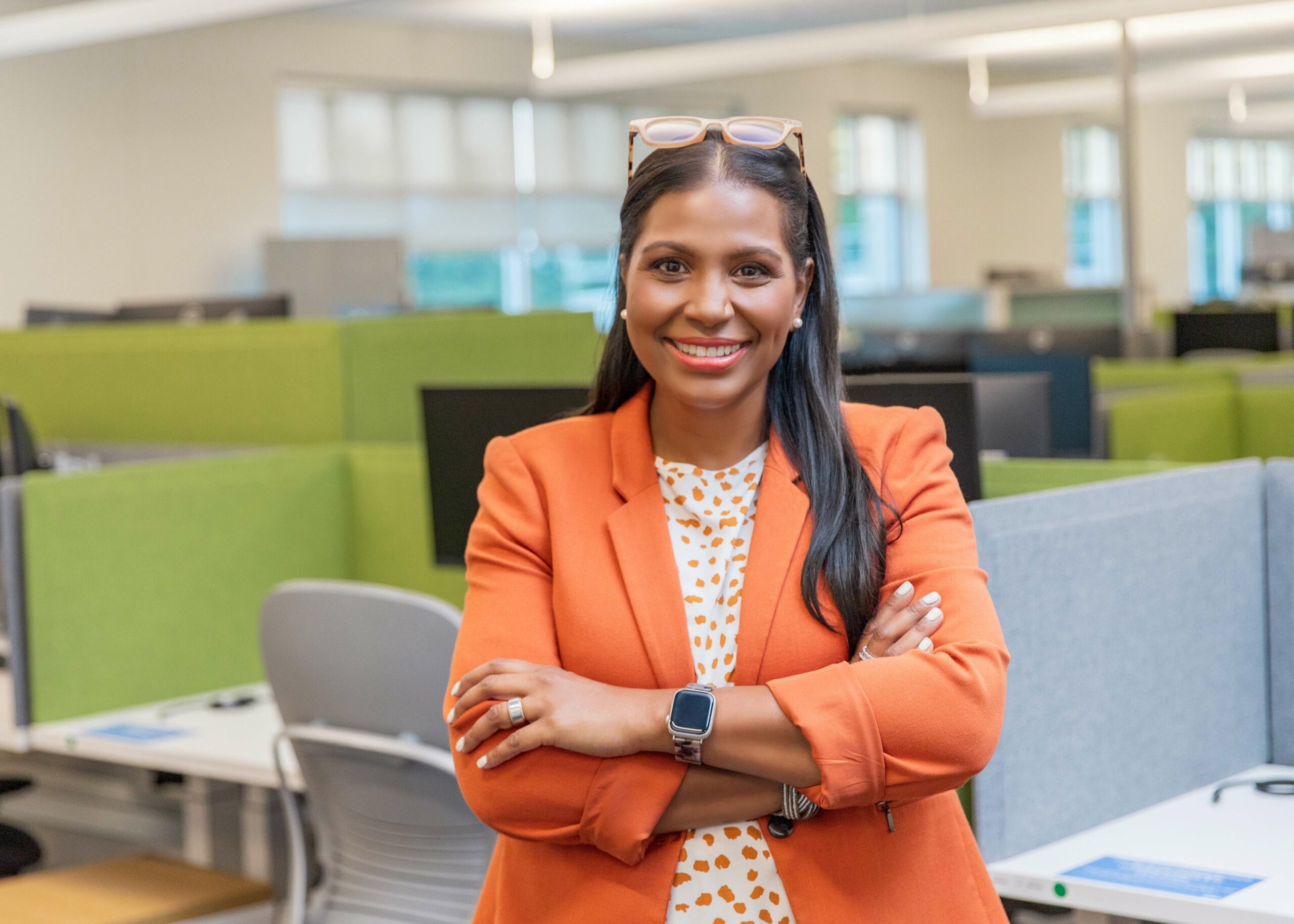As vice president of global talent development at Dell Technologies, Ramona Arora, Ph.D., oversees learning that helps provide the “fundamental building blocks” for her people to be successful. Ramona brings a learner’s perspective to her role from her time working in education before transitioning into talent management and leadership development at McGill University and the University of Texas at Austin. She joined Dell Technologies full-time in 2017, starting with a focus on aligning leaders with overarching strategies, establishing leadership development programs and moving up to oversee talent development for the last year and a half.
Teacher and coach
Two essential pieces in Ramona’s experience puzzle eventually led her to be an innovative leader of talent. She spent ten years as a high school teacher and basketball coach before moving into corporate work. In 2000, she worked in the Turks and Caicos Islands, where she instructed world geography courses, established career planning and college readiness workshops for seniors and their families.
Growing up in Toronto, Canada, Ramona played soccer and softball, and grew up in a sports-minded home, where her parents valued the lessons about discipline and teamwork that sports could provide, as well as learning skills and strategy, she says.
She also credits a “visionary” and “leading-edge” professor in her undergraduate program who connected her with the opportunity to teach in the Turks and Caicos Islands. This same professor, Lynn Butler-Kisber, Ph.D, was also her doctoral supervisor when she returned to McGill to lead international leadership projects and begin her graduate studies. “She taught me to trust myself,” Ramona says.
Additionally, while at McGill, Joe L. Kincheloe, Ph.D., taught her to keep asking questions and searching for the best (and sometimes) right answer. In an ever-changing world and industry, she says that has been essential to her success. “A lot of people don’t ask the right questions,” she says. “I gain clarity and understand it because I ask my questions, and I keep asking questions.”

After her time in the Turks and Caicos Islands, she taught high school social science and served as a career counselor in a public high school north of Toronto. There, she even coached a division one basketball team for five years. Despite having no previous experience coaching, Ramona attended “every coach’s clinic you can imagine,” she says. “Going to the library, looking at books on how to coach, talking to anyone that loved the game and then shadowing the women’s basketball coach.”
She’s always been fascinated with growing talent. “How does that talent fit into the marketplace of the economy? How do people actually find fulfilling opportunities and work that matches with their strengths, desires and passions?” she asks. “These questions have followed me all throughout my career.”
In trying to get disengaged 16-year-olds to understand metaphysics and working internationally helping governments understand human capital and talent retention, she gained experience in learning and talent at all levels. In her research at McGill University, she focused on how countries can build talent pipelines for their people by promoting specific career paths, with local opportunities to generate and retaining skilled workers – essentially reversing brain drain. She learned how human capital works at a macro level, which she said was critical preparation for managing talent and retention for a company such as Dell with over 135,000 employees.
At the McCombs School of Business at the University of Texas at Austin, Ramona loved teaching and coaching at the university level with graduate students at inflection points in their lives. But, as her second son was just six months and her oldest was about to start kindergarten, she knew it was time for a change that provided more flexibility away from the heavy demands of a campus.
11 jobs on a whiteboard
After having lunch with a friend who worked at Dell during her job search, she discussed an opportunity as a global L&D consultant in the commercial and enterprise sales division, Ramona knew it was the next role for her. “I love sellers, I love their energy, I love their pace,” she says. After a historic merger in tech between Dell and EMC, she joined the company in the summer of 2017.

Four months into her role aligning senior executives with new strategy and culture, a new leader, the VP of learning and development, Vanice Hayes, one of her stakeholders in sales and expertise, walked into a room with 11 jobs listed on a whiteboard. Among them were three roles highlighted by Hayes in executive education, top talent programs and a global consultant for learning. But a fourth, overseeing leadership development at Dell, jumped out at Ramona.
“That was the first time in my career where I just trusted my gut, asked a few good questions and then went for it,” she says. With expertise in leadership development, training and supervising new teachers, and coaching and consulting with senior leaders across industries, it was the perfect fit.
Transitioning from teacher to researcher, consultant and eventually the corporate world of learning, Ramona grounded herself the fundamental lessons she learned as a teacher. “You understand how to plan a lesson and think about how to get somebody to understand something and then go put it into action,” Ramona says. “But those are key moments where I was like, this is definitely my jam, and this is what I’m going to do for the rest of my life.”
Tasked with transforming leadership development from a blank state without a team, she had to build it from scratch. From designing a leader persona and content map and slowly building a team to running its operations, the team now serves more than 12,500 leaders at Dell. Wearing three main hats, Ramona oversees leadership team operations, strategy, hiring and training facilitators, and designing and delivering programs.
Currently with a leadership team of eight and more than 50 employees, she has teams that cover professional development, learning technology, leadership development, top talent programs, operations, executive readiness and solutions, external relations, a research and R&D arm, as well a go-to-market team.
“If you’re rolling out a performance management process and want to ensure your leaders can execute, you have to think about it from a go-to-market lens,” she says. For specific programs, you must think about the philosophy of the program itself and the specific needs it addresses, Ramona says. “The go-to-market has to be back down to the needs of your customers and you need to be thinking multi-channel to connect with different learners.”
Pan-Dell-enic programs
Among the programs she’s helped design and implement from a clean slate, Dell’s suite of learning offerings for leadership and professional development are based on the persona of the leaders and team members themselves, with specific levels of support for any who may need it.
“We’ve built programs that are multi-day; we have labs that really dig into a particular skill set,” Ramona says. For coaching and feedback labs, leaders don’t sit at their desks or listen to an instructor; instead, they take part in physically practicing and roleplaying scenarios and simulated learning with real-time feedback.

Ramona is excited about the work of her team launching Human Edge, a new program that will focus on fostering future-ready skills and thinking outside the box with technology. The learning solution uses live virtual content to build out interactive simulations for live online learning as an on-demand, equally engaging option. The goal is to leverage the live experience to build a simulated environment that allows people who weren’t physically there to feel like they were in the live session.
“This project shows how we push the needle on scalable and accessible learning — that everybody can be on a call, in all time zones,” she says.
With the amount of stimuli coming at workers today, Ramona wants to make learning more edutainment-focused, something leaders will want to learn. “We’re going create learning that is Netflix binge-able,” she says. “I want people to be hooked on this learning; you come in for the first hour and you’re dying to see what happens in the next hour. Everything is connected, changeable, and it has to be experiential because we know that’s more memorable.”
Having tailored experiences for employees at critical moments from every career journey is paramount, even if some programs were initially designed for other verticals at Dell. Ramona and her team have taken top talent programs and scaled them horizontally across the company. These pan-Dell programs have seen as much as 400 percent enrollment increase over projected rates.
“It’s knowing our talent and helping us think of talent across the company, as opposed to just on verticals, and building programs that actually serve that population,” she says. “We’re helping build better capacity for and better visibility to all our talent.”
In addition, DEI&B values and capabilities are infused in each program with stand alone learning options, instead of having separate and segmented diversity or unconscious bias trainings, for example. “You’re learning about strategy; you’re thinking about how to do a needs analysis from an inclusivity lens, tap into diversity of perspectives to build a stronger business case,” Dr. Arora says. “The way we build the curriculum, you’re already starting to think about perspectives and outside groups.” It’s the natural, evolutionary step, she says.
Future-ready
Looking ahead, she says further development and smart consolidation of learning and HR technologies such as chatbots, AI and strong UX platforms will be crucial to the success of the learning solutions built into the flow of work.
“We need to do a better job moving forward and help learners understand what that ecosystem looks like and see how we connect them with the developmental opportunities they need,” she says. “Learning in the flow of work is massive, that has to be tied to our company’s digital solutions.”
Ramona suggests the talent industry tends to be too caught up in shiny objects as miracle fix-alls. “You have to go back to the fundamentals. We use learning experience design as our fundamentals, a very human-centered design approach to all of our learning,” she says. “You’re never going to get the ROI, the impact out of it, unless you have the objective that you’re trying to measure.”
Always thinking three steps ahead, she also never underestimates the power of a reflective dinner conversation to have a crucial impact on her strategic vision. “My husband’s [perspective as a marketer] has been critical, the conversations I’ve had with him over the last 16 years of being married to him are essential,” Ramona says. “My team knows I come with really good ideas on Monday because my family and I had a really fascinating dinner conversation Sunday night.”












